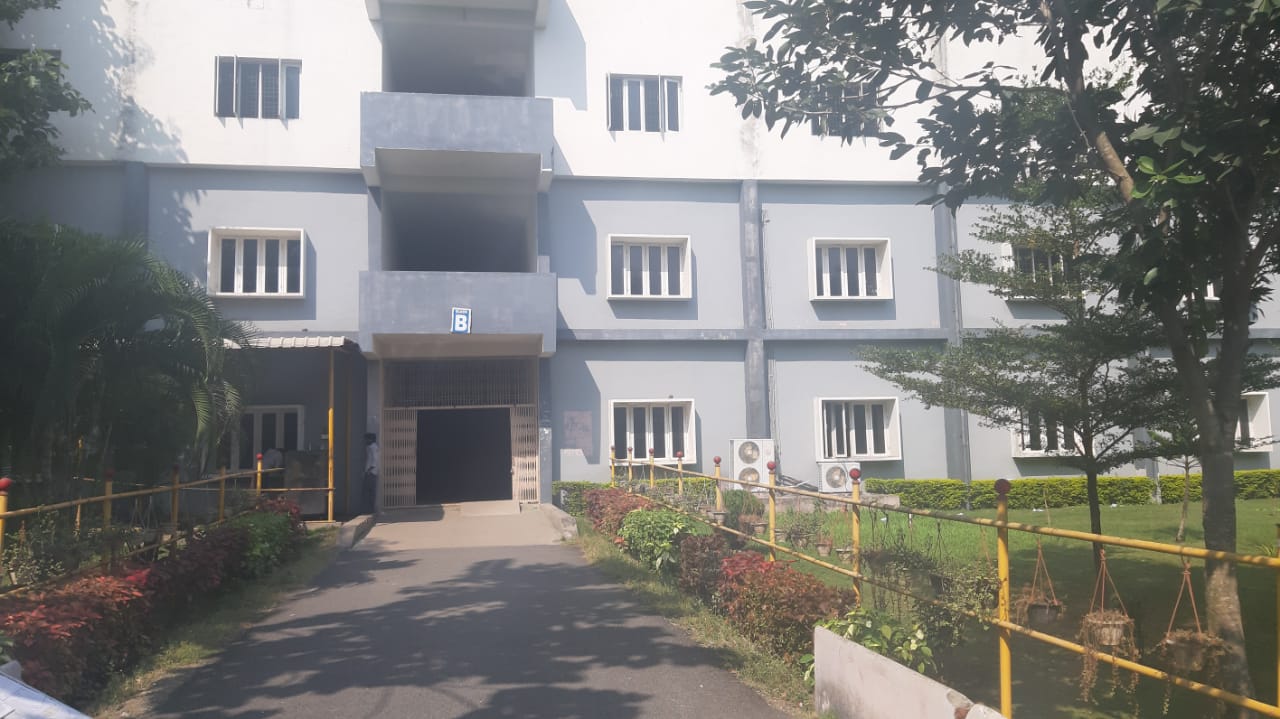The Department of Electronics and Communication Engineering was started in the year 2008 with an intake of 60 students in B. Tech. programme. The intake was enhanced subsequently and the present intake is 180.For this Academic Year(i.e 2023-24) a new B.Tech course in VLSI with 60 seats is issued by AICTE.The department also offers one PG programme, ,M.Tech (Digital Electronics and Communication Systems) which was started in the year 2012 with an intake of 18. The department has a team of highly qualified and experienced teaching faculty. The department has good infrastructural facilities and has full-fledged laboratories equipped with adequate state-of-the-art equipment and latest software The UG programme of the department is accredited thrice by AICTE-NBA. The department is recognized as Research Centre by JNTUK, Kakinada. The department has Embedded Systems and Robotics Lab which was established under IIT Bombay E-Yantra Project. The department has vibrant atmosphere for the students to emphasize on fundamentals and concepts focusing on analysis and design of various applications to fulfil the needs of industry. The department encourages faculty members and research scholars to carryout their research.

To become a centre of excellence by bringi out the professional competence in the core areas of electronics and communication engineeri
DMI: To provide conducive environment that impart electronics and communication knowledge through quality teaching & self-learning.
DM2: To serve the needs of electronics, telecommunication and allied industries through industry interaction.
DM3: TO Encourage innovative thinking, continuous learning an-long the stakeholders and create new techniques in IOT, VLSI.DM4: To Groom students in communication and interpersonal skills.
DM5:: TO Inculcate human values and ethics to make learners sensitive towards social
PEOI: Graduates with competencies in the area of electronics and communication engineering.
PE02: Graduates with continuous learning ability in hardware and software systems,in industry, research with technical and
PE03: Graduates with successful c interpersonal skills.
PE04; Graduates with professional and values.
PE05; Graduate shall contribute to goals with individual and team work.
PEOI: Graduates with competencies in the area of electronics and communication engineering
PE02: Graduates with continuous leaming ability in hardware and software systems.
PE03: Graduate with successåll career in industry, research with technical and interpersonal skills.
PE04Graduate with professional and ethical values
Graduate shall contribute to organizational goals with individual and team work.
Apply the concepts of Electronics and Communications to arrive cost effective and appropriate solutions
Apply the principles of analog, digital and Signal processing systems for Consumer electronics, medical and radar systems
Use VHDL, MATLAB, MULTISIM and MENTOR GRAPHICS to design integrated circuits and analyze signals
1. Engineering knowledge: Apply the knowledge of mathematics, science,
fundamentals, and an engineering specialization to the solution of complex problems.
2. Problem analysis: Identify, formulate, research literature, and analyze complex
engineering problems reaching substantiated conclusions using first principles of
mathematics, natural sciences, and engineering sciences.
3. Design/development Of solutions: Design solutions for complex engineering problems
and design system components or processes that meet the specified needs with appropriate
consideration for the public health and safety, and the cultural, societal, and environmental
considerations.
4. Conduct investigations Of complex problems: Use research-based knowledge and
research methods including design of experiments, analysis and interpretation of data, and
synthesis of the information to provide valid conclusions.
5. Modern tool usage: Create, select, and apply appropriate techniques, resources, and
modem engineering and IT tools including prediction and modeling to complex engineering
activities with an understanding of the limitations.
6. The engineer and society: Apply reasoning informed by the contextual knowledge to
assess societal, health, safety, legal and cultural issues and the consequent responsibilities
relevant to the professional engineering practice.
7. Environment and sustainability: Understand the impact of the professional engineering
solutions in societal and environmental contexts, and demonstrate the knowledge of, and need
for sustainable development.
8. Ethics: Apply ethical principles and commit to professional ethics and responsibiliileg nd OW
norms of the engineering practice.
9. Individual and team work: Function effectively as an individual, and as a member or
leader in diverse teams, and in multidisciplinary settings
10.Communication: Communicate effectively on complex engineering activities with the
engineering community and with society at large, such as, being able to comprehend and
write effective repofls and design documentation, make effective presentations, and give and
receive clear instructions.
11. Project management and finance: Demonstrate knowledge and understanding of the
engineering and management principles and apply these to one's own work, as a member and
leader in a team, to manage projects and in multidisciplinary environments.
12. Life-long learning: Recognize the need for, and have the preparation and ability to
engage in independent and life-long learning in the broadest context of technological change.